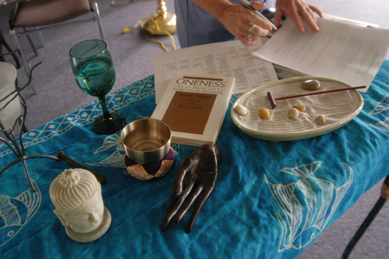Sample Diversity, Inclusion & Cultural Competence
Training Programs
Multicultural Smorgasbord:

What do we mean when we say “diversity training”? Some people expect it means learning about observing anti-discrimination laws; others think it means overcoming individual biases; others view it as appreciating differences between cultures; and still others hope that it has something to do with positive social change and equity. Our approach begins with reviewing some conceptual frameworks* with prospective clients to determine what “type” of diversity training they are looking for. They may be seeking help with (1) International Intercultural Competence (IC), (2) Legal Compliance (LC), (3) Managing Diversity (MD), (4) Individual Prejudice Reduction (PR), (5) Valuing Differences (VD), or (6) Working to overcome recognized systemic biases: Anti-“Ism.” (AI). If we at Riding the Wave Training do not offer the type of training the client is looking for, we will recommend other training providers. *(This helpful framework was created by colleague Patti DeRosa of Changeworks Consulting. PDF) |
An Introduction to the CLAS Standards for Healthcare: Culturally & Linquistically Appropriate Services (U.S. Dept of HHS)
The U.S. Department of Health and Human Services established the 14 CLAS standards in 2001 as a means of addressing the vast discrepancies in the “access, quality, and outcomes in healthcare” between racial and ethic groups in the U.S.
Many healthcare organizations still struggle to understand exactly what is meant by “cultural competence.” This engaging, first -“class” CLAS overview will take the guesswork out and help committed providers to avert avoidable misunderstandings and create better cross-cultural communication so all patients have equal opportunity to best healthcare outcomes.
Beyond Diversity: Ally-ship
Trainings can be tailored to racial/ethnic, gender, physical disability/ability, age, and GLBT specific.
To be fully effective and self-generating, diversity initiatives must go beyond simply tolerating differences in order to ward off potential EEO lawsuits. Many diversity programs gloss over the broader social contexts within which women, people of color, people with disabilities, and other groups struggle, both in and beyond the workplace. As many have discovered, some diversity initiatives that deal only on the surface would better not have been tried at all because of the cynicism they often produce.
Our 1-2 day programs will help expand participants’ awareness and comfort in going beyond “appreciating difference” to acknowledging individual and cultural blind-spots and creating deeper understanding and trust. Highly functioning diverse teams that are truly engaged with one another will come, stay the course, and grow.
Grappling with Religious Pluralism in the Workplace: World Religions 101

Our world is becoming a more interesting and complex place, as people from various cultures come to live and work together.
Do you ever wonder what the turban signifies to your Sikh co–worker, or what values your Hindu boss holds most deeply, or what most inspires your Buddhist employee? This unique workshop offers a helpful overview of common themes found in some of our world's most ancient spiritual traditions.
Understanding more about the basic belief and value systems of your co-workers and clients will help to avert potentially uncomfortable situations – or worse! According to the U.S. EEOC, the number of lawsuits filed for religious discrimination complaints filed has risen by 90% since 2000!
This is an important form of cultural sensitivity to support in tie workplace, and will contribute considerably towards the building harmonious professional relationships.
Navigating Cross-Cultural Life in the Big City!
American businesses [as well as some NGO's] often possess considerable technical information, but generally lag way behind in understanding the norms and worldviews of those from other cultures with whom they are dealing. At times these errors are amusing, and others have very serious consequences. Explore various means by which cultural anthropologists measure and understand views and norms related to various important social aspects, such as ethics, communications, gestures, emotions, status, time, and destiny.
—Be sure what those hands of yours are saying!!
Trainings are available in: Virginia, Washington DC, Maryland, Delaware, West Virginia, North Carolina, South Carolina, Tennessee; Charlottesville, Richmond, Lynchburg, Roanoke, Harrisonburg, Danville, Stauton, Norfolk, Hampton, Waynesboro, Fredericksburg, Northern Virginia. If your area is not listed, call us with an offer we can't refuse.
© RTW All training programs, descriptions, and resource materials (unless otherwise attributed) are the property of Riding the Wave Training & Development